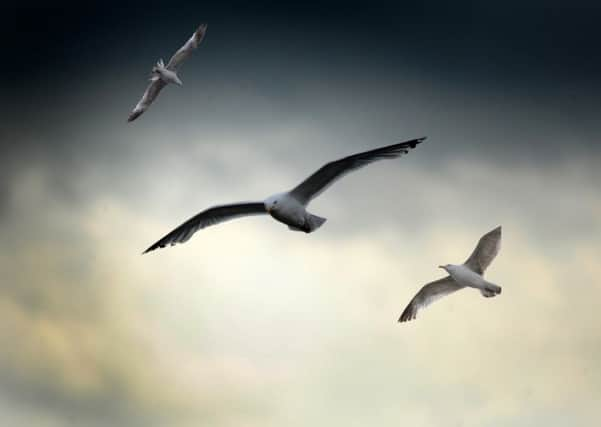'˜Alarming increase' in menacing gulls


Residents say they have noticed an ‘alarming increase’ in the numbers of birds swooping over Sainsburys, Homestream House and the nearby Regis building over the past month.
Colin Case, who lives in Worthing Road, said: “They are screeching from dawn to dusk and leaving their droppings everywhere.
Advertisement
Hide AdAdvertisement
Hide Ad“I don’t mind the dawn chorus with doves and other birds but these urban gulls make a very unnatural sound.”
Colin, 66, who works in the immigration department at Gatwick Airport, said: “The last thing any town wants is the population of gulls to expand and disturb shoppers.”
He said something needed to be done quickly “before further nesting and breeding.
“Cleaning is clearly not going to stop them making their home in the location.”
Advertisement
Hide AdAdvertisement
Hide AdHe thinks the gulls are coming from the municipal waste tip at Hop Oast and is worried that their numbers will multiply still further.
“I’m proposing to the council that they try and nip it in the bud before the population expands.
“They need to stop them nesting by putting up netting.”
Colin has already written to Horsham District Council about the problem and was informed by public health officials that they had received a number of complaints about sea gulls.
But, they said, there was little they could do because the birds are a protected species.
Advertisement
Hide AdAdvertisement
Hide AdA spokesperson for the council told the County Times: “The council is aware of reports regarding sea gulls but, like most wild birds, sea gulls are a protected species and therefore controlling gulls is extremely difficult if there is no evidence of them affecting public safety, air safety or public safety.
“In order to alleviate problems we would urge the public not to feed gulls or leave food waste in public areas.”
Although seabirds, many gulls live inland for at least part of the year.
Their long, slim wings mean they can fly exceptionally well, and their strong legs give them good mobility on the ground.